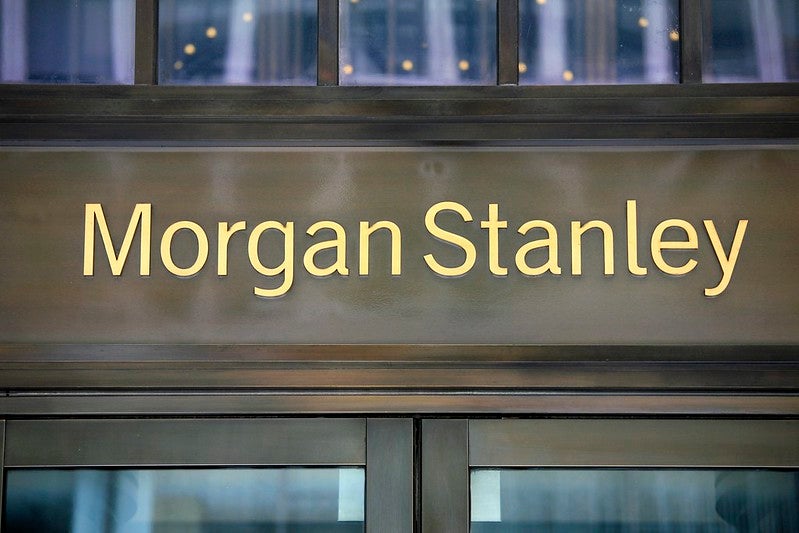centres has intensified in 2008, with many observers calling into
question the future viability of the model. But, Dan Jones reports,
jurisdictions such as the Isle of Man are beginning to see the
rewards of a push towards a more collaborative approach.
The Isle of Man is trying to move up the
value chain of international wealth and trust management, confident
it has regulatory compliance in place that distinguishes it from a
number of other jurisdictions in a torrid year for the offshore
banking business.
“We do not believe all the offshore financial
centres will be around in 10 years’ time,” declares Brian Donegan,
director of foreign direct investment at Isle of Man Finance.
Donegan and others on the island believe the jurisdiction is making
the right steps in terms of both compliance and business
propositions.
Other European financial centres such as
Gibraltar (see PBI 238) also see regulatory compliance as
a key facet of their propositions to private clients and
businesses, but officials in Man see progress as a significant
achievement for a jurisdiction which, as Donegan notes, “only
became engaged as a finance centre in the 1980s and 1990s”, a
timeline he contrasts with the longer-term strategies of the
Channel Islands.
The likes of Jersey and Guernsey have long
been the main competitors with Man in terms of UK financial
centres, though Donegan is keen to point out that the island is
“the only offshore jurisdiction with a triple-A sovereign rating
from Standard and Poor’s”. For others, however, the very notion of
offshore financial centres is one that the jurisdiction must move
beyond.
“We would rather the debate was not about
onshore/offshore, but rather abut compliant/non-compliant,” says
Ian Bancroft, managing director of Cayman National Bank in the Isle
of Man.
How well do you really know your competitors?
Access the most comprehensive Company Profiles on the market, powered by GlobalData. Save hours of research. Gain competitive edge.

Thank you!
Your download email will arrive shortly
Not ready to buy yet? Download a free sample
We are confident about the unique quality of our Company Profiles. However, we want you to make the most beneficial decision for your business, so we offer a free sample that you can download by submitting the below form
By GlobalDataIn the same vein, Nick Boon from Isle of Man
Finance declares: “The message we are trying to get across is that
we are not just a viable alternative jurisdiction, but we should be
a jurisdiction which should be among the first that people consider
looking to when they are advising their clients, because all the
infrastructure and resources exist here.
Bancroft adds: “That capacity extends to
population density, and the ability we have to more easily bring
people into the island and utilise the great skills base in the
UK.”
For Bancroft, that capacity extends to the
potential to maximise both the physical space on the Isle of Man
and its proximity to the UK, which has “a great skills base”. But
while the island may tap UK resources, the financial focus is less
UK-centric than in the past, Bancroft believes.
Boon asserts that the steps taken over the
past three-to-four years “have helped raise our profile in the
market place in nearly every field. Fund administration, for
example, is just one area where we have grown exponentially.
Banking deposits is another”.
Banking accounts for 18 percent of generated
income on Man, but financial services as a whole still accounts for
no more than a third of total income, standing the jurisdiction in
good stead for future growth. Stephen Carse, economic adviser to
the government, expects Man to still be growing at around 6 percent
in real terms come July 2009.
‘White list’
The drive to meet compliance
regulations has not been entirely straightforward, however. In June
the European Union did not include the Isle of Man, Jersey or
Guernsey on a so-called ‘white list’ of countries considered to
have satisfactory anti-money laundering practices in place. That is
in contrast to the UK treasury’s own findings, published in May,
which included the crown dependencies on its own white list.
“The Isle of Man understands its obligations
as a financial centre that is part of the global economic
community,” said Treasury Minister Alan Bell earlier this year,
following the signing of a tax cooperation agreement with Ireland.
“International benchmark standards are becoming increasingly vital,
and I hope they are adhered to by all countries wishing to attract
top-class investment and business to their shores.”
The jurisdiction had previously signed
co-operation agreements with a number of other countries, including
the seven members of the Nordic Council, comprising Denmark,
Finland, the Faroe Islands, Greenland, Iceland, Norway and
Sweden.
Nicola Guffogg from the Income Tax division of
the Isle of Man Treasury admits the former reputation of the
jurisdiction as a tax haven “still colours discussions with other
countries” but is positive that progress is being made.
Government officials also speak of other
improvements that have added to the attractions of the Isle of Man
as a place for investment.
The commencement of flights from London’s City
Airport, for one, is seen as making the jurisdiction more
convenient for time-pressed workers in the English capital, while
the opening of a representative office in the City has also
resulted in heightened interest in the Isle, officials say.
A strategic review of the Isle’s banking
sector has just begun, with the possibility of an Isle of Man stock
exchange being one of the more ambitious proposals set to be
discussed.
“What the Isle of Man is trying to do is to
move up the value chain,” Bancroft explains. The tax advantages are
perhaps less than they used to be, but what we can offer is a
tax-neutral environment, that can be useful from both a private
client and a business perspective.
The private banker believes the approach
adopted by some countries in Europe coloured by a tax haven
reputation “just isn’t sustainable”. Clients in the Isle of Man, he
says “have the comfort of knowing it’s an upstanding jurisdiction
rather than one that’s hiding things”.
Regulation is likely to become more extensive
over the next two years, predicts Michael Weldon from the Financial
Supervision Commission, and the jurisdiction is also preparing for
the arrival of the International Monetary Fund (IMF) in September
as part of a wider offshore assessment programme, which will
analyse the entire financial services sector in Man. Boon,
meanwhile, believes that the current proposition for private
clients is more than adequate.
He says: “All the expertise and resources
which we need to be able to put together a proper end-to-end
proposition for a wealthy client exist here in the Isle of Man, and
that is wrapped in an economic certainty not everybody has right
now.”







